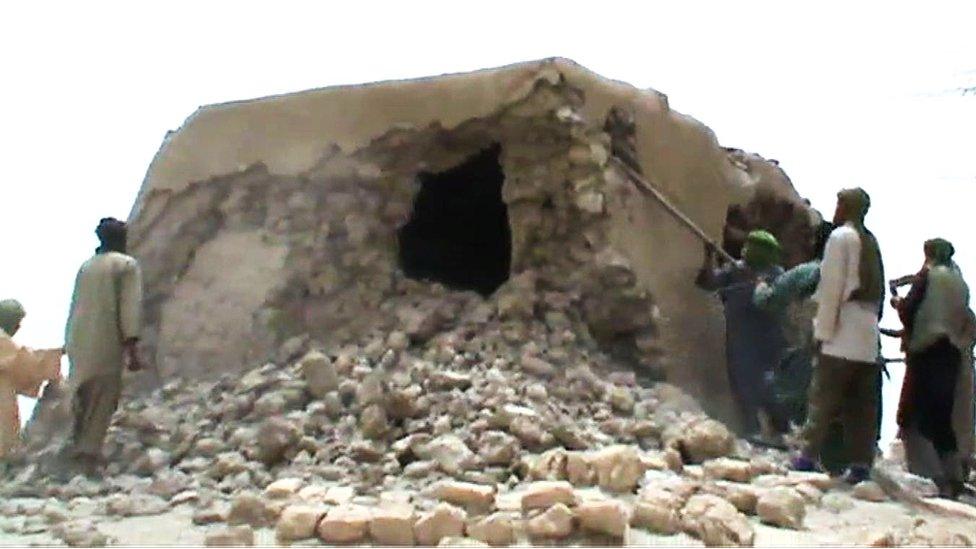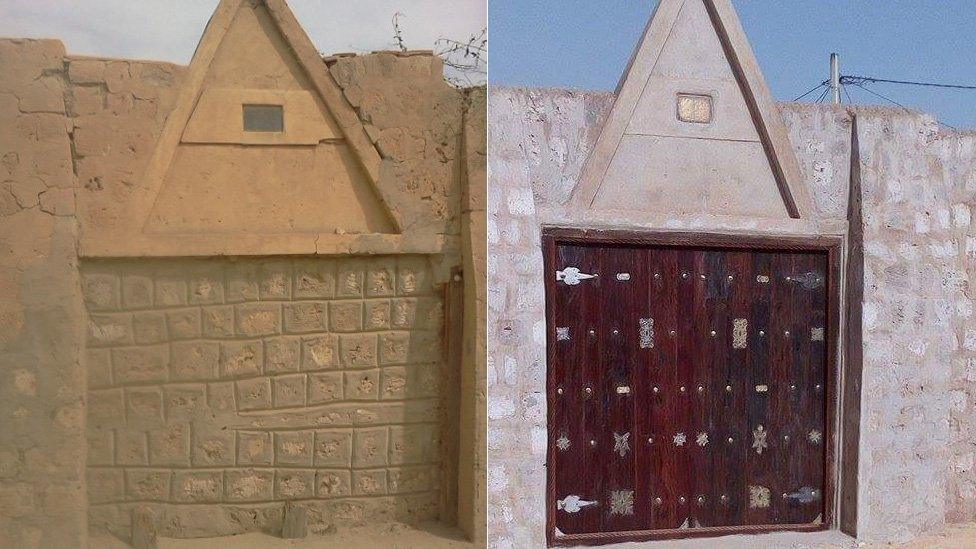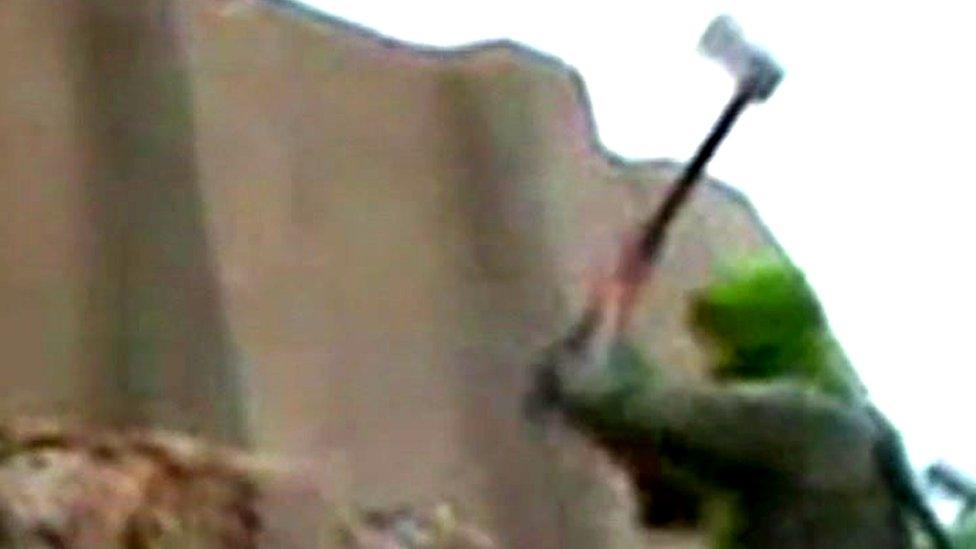ICC Timbuktu case: Mali Islamist liable for €3m in damages
- Published

Mahdi expressed remorse during his trial
An Islamist militant who is serving a prison sentence for destroying ancient mausoleums in Timbuktu has been found liable for nearly 3m euros in damages.
Ahmad al-Faqi al-Mahdi was jailed for nine years last September by the International Criminal Court (ICC).
He admitted leading rebel forces who destroyed the historic shrines at the world heritage site in Mali in 2012.
The ICC judges' latest ruling came after considering how his victims should be compensated.
Presiding judge Raul Cano Pangalangan said the 2.7m euro ($3.1m; £2.4m) damages should go to the local community of Timbuktu protecting the sites.
A symbolic one euro was awarded to both the Malian state and Unesco, which runs the world heritage sites.
As Mahdi is in prison and has no money, the funds for the damages will come from the ICC's Trust Fund for Victims.
Who is the world's first cultural war criminal?
Mahdi - described as a "religious scholar" in court documents, external - led rebels who used pickaxes and crowbars to destroy nine of Timbuktu's mausoleums and the centuries-old door of the city's Sidi Yahia mosque.
Prosecutors said Mahdi was a member of Ansar Dine - an Islamist group with roots in the nomadic Tuareg group and links to al-Qaeda in the Maghreb - which occupied Timbuktu for months, instilling its own version of Sharia law on residents.
The court found he had not only offered "logistical and moral support" for the attacks, but also took part in the physical destruction of at least five out of the 10 buildings.

Nine mausoleums and a mosque were destroyed in 2012
Mahdi admitted the charges and was remorseful. He told the court at the time of his verdict: "I would like to give a piece of advice to all Muslims in the world, not to get involved in the same acts I got involved in, because they are not going to lead to any good for humanity."
He was the first Islamist militant to go on trial at the ICC.
- Published22 August 2016

- Published27 September 2016

- Published30 September 2015

- Published24 March 2016
